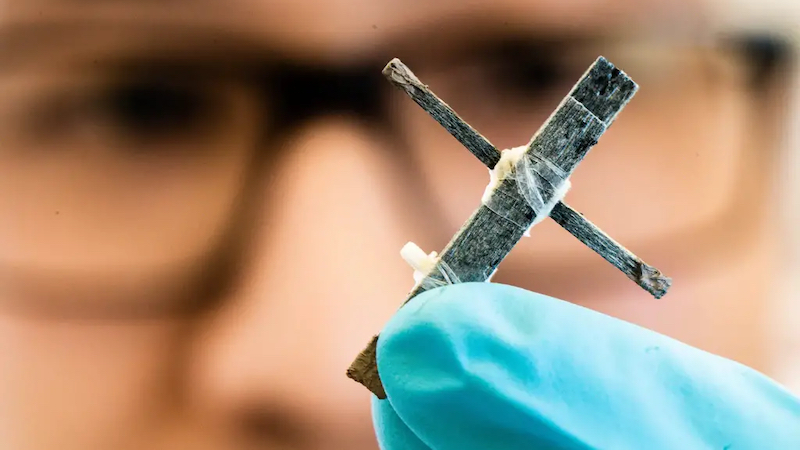For the first time, researchers develop a transistor made of natural wood
A research team from Linköping University in Sweden has developed the first working transistor out of wood. However, possible areas of application are still unclear. The backgrounds.
The use of computers is constantly increasing. While the devices still took up entire rooms for standard arithmetic operations about a hundred years ago, there are now finger-sized models. However, this does not seem to be the end of the development. Because a new type of transistor could one day open up further application scenarios.
Researchers at Linköping University developed a transistor made of wood in cooperation with the Royal Institute of Technology KTH. This is cross-shaped and fits in a small palm. The advantage lies in the natural origin of the components.
Transistor made of wood is the first of its kind
There is still no special application scenario for the transistor. Still, researchers envision the technology could be relevant one day. For example, if we intervene in nature and develop electronic plants, the component could play an important role in how the system works.
Previously, however, science had not managed to build a transistor out of wood. The first version is therefore not exactly small and does not have a high speed. But that could change quickly with further developments.
Transistor consists of conductor tracks filled with polymer
The first version of the transistor is made of balsa wood. Because the technology requires a structure without grains. The team removed the lignin, creating long channels in the cellulose fibers where the substance was previously located. The researchers then filled the channels with a conductive polymer.
The result was a wood with conductive polymer channels. The system has its advantages and disadvantages. It took a second to switch off an electrical circuit and up to five seconds to switch it on. Nevertheless, the material can withstand a significantly higher voltage than other organic transistors.
Also interesting:



